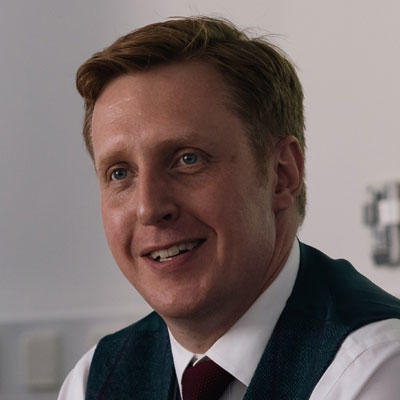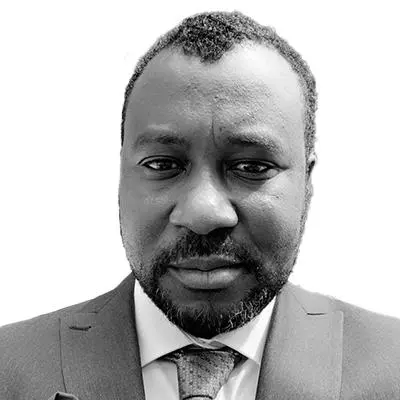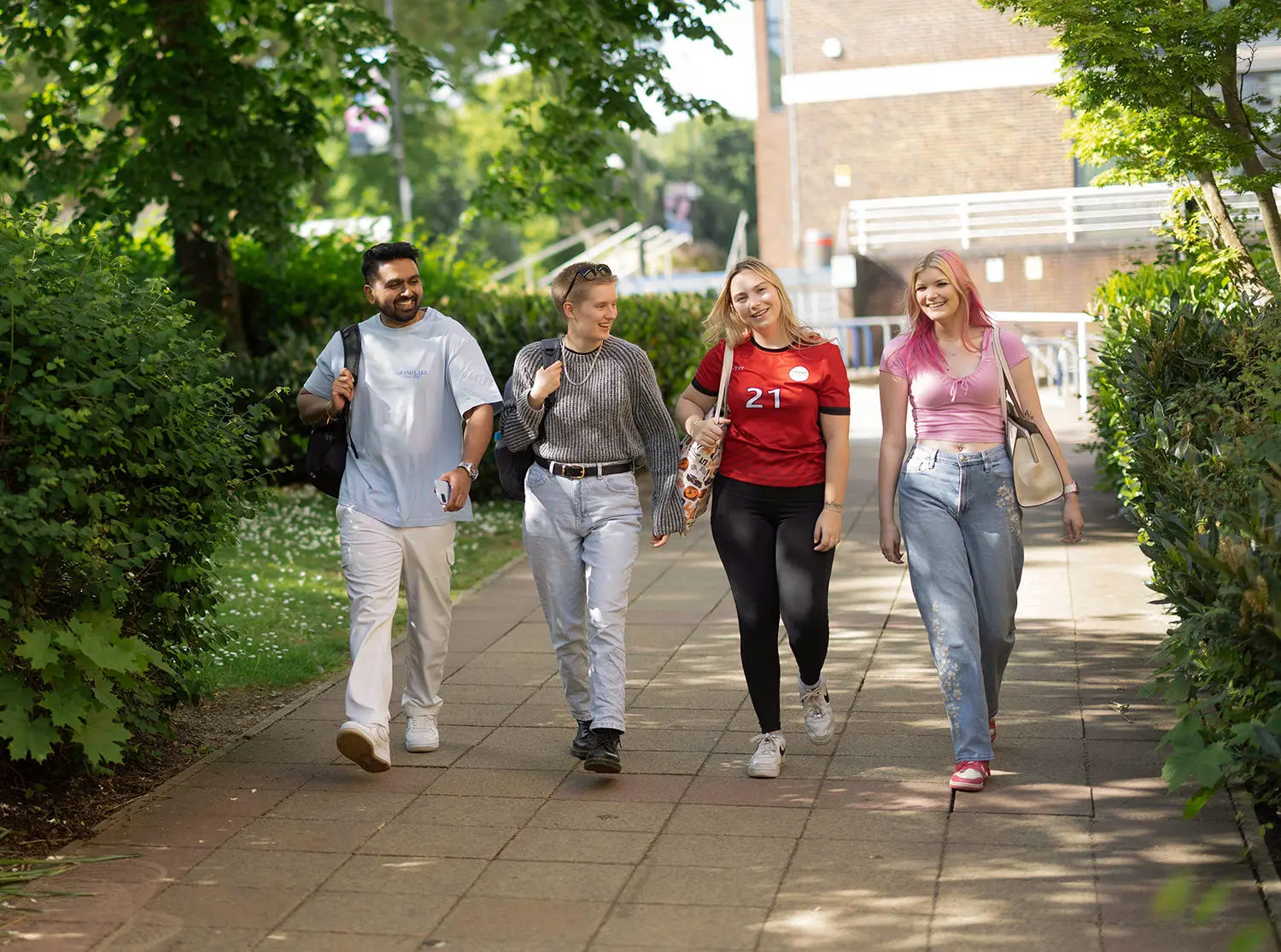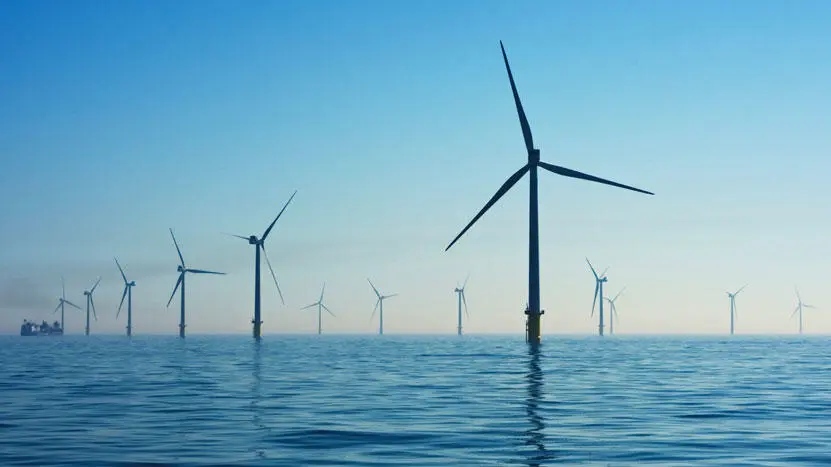
MSc Project Management
Take your career to the next level with our professional course accredited by the Association for Project Management. Dive deep into the methodologies, techniques, and processes of project management.
Find out more
Be at the forefront of energy technology and shape the future of the next generation. Apply your engineering skills to develop efficient uses of valuable global resources.
Contact international admissions
Email: Call:The energy sector is a fast-growing industry with enormous potential in the short and long term. From renewable energy generation to the efficient use of energy in engineering systems such as cars, the engineering industry will require engineers with expertise in the environmentally friendly generation, distribution and efficient use of energy. This renewable energy engineering course will equip you with key engineering skills and knowledge to start your career in this area.
Energy is now a very valuable resource. Shifts in world attitudes to the use of fossil fuels driven by global warming and climate change has meant a change in emphasis to renewable sources of energy. In conjunction, there is a far greater effort to measure the energy efficiency of systems, products and buildings to ensure that operational costs are minimised and both environmental and financial savings are maximised.
Clean power generation is only part of the challenge - the engineering industry is facing an additional challenge to maximise the efficient use of energy whilst reducing reliance on fossil fuels. Government strategy and climate change action have meant that energy is more valued than ever.
This course aims to provide well-trained graduates with the skills and knowledge to work towards addressing these issues. Using a mix of classroom and specialist laboratory facilities, this course will give you a strong grounding in science and engineering theory, with an emphasis on renewable power generation methods, environmental impact, and the efficient use of energy in engineering and technology.
The first year of this course is shared with our other engineering degrees - you'll have opportunity to develop sound underpinning science and engineering skills in mathematics, mechanics, electrics, manufacturing, CAD and design processes, and professional skills. The second and third years of the course enable you to explore concepts in renewable energy, distribution of energy, and the efficient use of energy in engineering systems. This is complemented by additional work on the lightweight structures used in renewable energy technology and vehicle technology.
If you’re looking to study our mechanical engineering degree but don’t have the relevant qualifications or experience, the science and engineering foundation year will help you develop the core skills and knowledge to progress. Find out more about the science and engineering foundation year.
This course is also offered on a one-day-per-week part-time study basis for professional CPD, aimed at applicants already in employment. Applicants holding a relevant HNC qualification would normally be considered for entry on to year three of the six-year part-time course.
This course is part of the South Coast Institute of Technology (IoT), a partnership of colleges, universities and industry-leading employers to create new career opportunities in the technology sector. IoT courses like this one are precisely tailored to the needs of employers in the maritime, engineering and digital industries – industries which are hungry for talented new engineers, technologists, technicians and creatives like you.
Part of:

This course will suit those with a strong interest in engineering and environmental science, who wish to pursue a career in the fast-growing renewable energy sector.
Graduates will be well prepared for both STEM, general engineering and renewable engineering industries, and any branch of engineering which includes the efficient use of energy.

Course Leader

Lecturer

Lecturer

Associate Professor

Technician Instructor

Senior Lecturer

Associate Lecturer

Lecturer

Senior Lecturer

Associate Professor

Associate Lecturer

Associate Professor of Marine Sustainability

Lecturer
The University cannot guarantee any particular members of staff will teach specific aspects of the course in the future, but will endeavour to ensure the teaching team maintains their balance of experience and qualifications.
To aid study, students have access to our specialist facilities, including a 60m towing tank for wave generation and tidal turbine use; composite materials laboratory for construction of lightweight structures; and our materials testing laboratory.
Our vibrant campus brings state-of-the-art facilities to enhance your learning and elevate your student experience. Our award-winning teaching building, The Spark is centred around students and offers a stimulating study environment with flexible learning spaces. Away from studying, why not try out the gyms, fitness studios and sports halls in our £28 million Sports Complex, or watch a blockbuster film at our student-run cinema with Dolby Atmos audio.
Broaden your horizons by adding an international dimension to your CV – essential to achieving success in today’s fast-changing, global environment.
Studying, working or volunteering in another country could be the experience of a lifetime. Enhance your degree by developing important global skills such as knowledge of other countries, language skills, intercultural awareness, adaptability and confidence.
For more information, please email international.mobility@solent.ac.uk.

On this module you will learn how to apply a range of mathematical techniques to realistic engineering problems. You will use basic algebra and solve simultaneous equations and equations of straight lines to answer engineering problems around linked variables in mechanics and electronics.
The aim of the module is to demonstrate the role of an engineer as an engineering designer. This module is designed to foster an understanding of the fundamentals of the engineering design process and its various stages. It equips you with theoretical and practical technical knowledge to design a product by going through the various stages of the design process.
This module will give you an understanding of the fundamental principles used by engineers to design vehicles, machines and buildings. You will learn to analyse forces on the performance of machines and structures and how to conduct tests and experiments to confirm the results on your analysis.
This module helps you to develop an awareness of the factors affecting the selection of materials and processes used in manufacturing a product. It does this by comparing the attributes of materials and the suitability of processes in the light of the external factors that need to be considered when developing the product design specification.
This module is designed to introduce you to the electrical and electronic principles necessary to analyse circuit behaviour and design. It also provides the foundation for further study of more specialised electrical/electronic engineering techniques used later in your course.
This module will introduce you to the profession of engineering. This includes both theoretical and professional skills relating to the role of the professional engineer and also supports your transition into higher education.
All engineering is underpinned by mathematics, which becomes more complex as you deal with more realistic and challenging topics and scenarios. The aim of this module is to introduce key mathematical principles and methods to you, so you can build upon the skills and knowledge that you gained in the first year.
On this module you will learn/develop your understanding of a variety of vital underpinning mathematical techniques, such as Laplace transforms, Fourier transforms and vector analysis, amongst others.
The module is taught around three key topic areas; environment, impact and legislation. You will learn about meteorological systems for you to better understand the key sources of renewable energy. This includes weather monitoring and forecasting, tidal systems, and predictions, marine geography and hydrography, maritime, coastal and on-shore environmental issues.
The wind and the tide represent two incredibly powerful sources of renewable energy. Both sources are similar in aspects such as the use of turbines, so you will explore the common features between the two before looking at more detail at some of the differences.
You’ll first cover basic thermodynamics and then the principles of solar energy recovery. This includes an introduction to photovoltaic cells, concentrated solar power systems (such as parabolic troughs), domestic scale water heating systems and solar energy tracking systems. You will also develop your knowledge of heat energy recovery via geothermal systems.
This module will introduce you to the business subjects of marketing, competition and law, including the nature of contracts and ethical considerations. These are key areas for any engineering business – as such every technically focussed engineer should have a good working knowledge of these areas.
Renewable energy devices convert energy from a variety of forms to electrical energy and you will learn about power distribution. As part of smart grid technology, you’ll learn about load balancing and load adjustment along with demand response. You will also learn about the principles of back–up generation systems based on traditional fossil fuel systems.
You will expand your knowledge of mechanics including principles of composite materials and analysis to apply to the principles of offshore wind turbines, tidal energy and wave energy devices that operate in the maritime environment. You will also look at production systems and processes and look at the recycling of composite systems.
A key area of current renewable energy technology is that of design solutions for Energy Recovery. You’ll build on your knowledge of mechanical and electrical systems to cover the principles of kinetic energy recovery and regenerative braking systems, as well as thermodynamics in the context of thermal energy recovery systems.
Carrying out project work is one of the most critical skills for your future career as an engineer. In this module, you will carry out a project in a topic area chosen by you. You will be encouraged to undertake project related to real world application that allows you to build upon and expand your knowledge for renewable energy and engineering.
Please note: Not all optional modules are guaranteed to run each year.
In this module you will study these organisational constraints by examining the role, techniques and difficulties involved in strategic business management, along with the processes and strictures of formal strategic planning.
This module will provide you with the opportunity to explore and develop your entrepreneurial talents, which are important if you want to develop your own business or understand how businesses are developed. You will develop knowledge and skills around the legal and human resource aspects of setting up and running a successful business.
Contact international admissions
Email: Call:Solent’s curriculum framework builds on our unique, creative and applied approach to teaching. The transformation of students’ lives is at the heart of our mission as a university, and our curriculum – informed by the latest theory – reflects this shared educational vision.
Find out more
The student achievement team are on hand to help you succeed during your studies at Solent. They aim to contact you at key times during your time here with personalised information, advice and guidance, by email or phone.
The disability advice team provides information, advice and guidance for disabled students.
All students can access Succeed@Solent, Solent's online guide to getting better grades. It offers extensive, practical information and advice on topics such as academic writing, research and presentations.
The renewable energy and sustainable engineering industries are growing, thanks to international requirements to combat climate change and greenhouse gases. Drivers such as the financial and environmental cost of energy are also resulting in a new emphasis in the efficient use of energy, from state-of-the-art racing cars, to road cars, to plant and machinery. Developments in renewable energy in wind, wave and tidal energy alone are expected to create tens of thousands of new jobs in the next decades.
The UK is geographically placed to gain particular benefit from renewable energy, and as such the industry has developed in the UK. Currently in the UK there are almost 11,500 wind turbines - 8,827 operational onshore turbines, and a further 2,652 offshore turbines demonstrating the scale of this growing industry.

Starting salary: £18,000 to £28,000
Experienced engineers can earn between £28,000 and £45,000. Salaries for project engineering managers or chartered engineers typically range from £40,000 to £60,000 or more.
Starting salary: £25,000 to £35,000
With experience, you could earn a salary in the range of £35,000 to £60,000.
The stated salaries are published on prospects.ac.uk. Income figures are intended as a guide only.
The Solent Careers team is committed to getting students into great careers.
While you are studying, the team can help you with finding work experience or placements, link you with a mentor, check your CV, or offer one-to-one guidance.
We also have graduate job opportunities just for Solent graduates.

6th
UK uni for sustained employment
Longitudinal Educational Outcomes, 2022
Every student at Solent University will also have the option to study an additional Certificate in Practical Artificial Intelligence qualification alongside their course. Free of charge, the course ensures you'll be prepared for a fantastic and varied career after graduation.

Thinking about studying further than an undergraduate degree? Alumni can get 20% off their postgraduate study.

Take your career to the next level with our professional course accredited by the Association for Project Management. Dive deep into the methodologies, techniques, and processes of project management.
Find out moreThe tuition fees for the 2026/27 academic year are:
For further information, please visit our tuition fees page.
While most course costs are covered by your tuition fees, some essential resources and optional extras may need to be paid for separately. For advice on budgeting and managing your money, please contact student.funding@solent.ac.uk.
The 2026/27 additional costs are not yet available. For guidance, previous additional costs have been:
Optional costs
Solent University offers a range of bursaries and scholarships that provide financial assistance or waive fees for tuition or accommodation. Each bursary or scholarship has specific eligibility criteria. Check out our bursaries and scholarships pages to find out more.
Cost of living support
At Solent, we understand that the cost of living crisis may be of some concern. To help, we've put together some detailed information to show what support is available and how to make your money go further.
Graduation costs
There is no charge to attend graduation, but you will be required to pay for the rental of your academic gown (approximately £45 per graduate, depending on your award). You may also wish to purchase official photography packages, which range in price from £15 to £200+. Graduation is not compulsory, so if you prefer to have your award sent to you, there is no cost. Extra guest tickets will go on sale after results publication and will be sold on a first-come-first-served basis. The cost per ticket is currently £20. Please note, we do not guarantee there will be any extra tickets available to purchase.
Contact international admissions
Email: Call:Please select an option below:
As a general guide, we look for qualifications that are equivalent to the British high school A-levels.
If you are applying from outside the UK, find information about entry requirements, visas and agents for your country here.
For further information about EU qualifications, please see our course entry requirements document.
For international students who do not meet the direct entry requirements for this undergraduate degree, our trusted partner, QA Higher Education offers the following pathway programme designed to develop your academic and English language skills:
As a general guide, we look for qualifications that are equivalent to the British high school A-levels.
If you are applying from outside the UK, find information about entry requirements, visas and agents for your country here.
For further information about international qualifications, please see our course entry requirements document.
For international students who do not meet the direct entry requirements for this undergraduate degree, our trusted partner, QA Higher Education offers the following pathway programme designed to develop your academic and English language skills:
All international applicants need to be aware that the English language requirements to attend Solent University, and the English language requirements to obtain a visa from the Home Office, may be different. This means that if you meet the Solent University language requirement to gain a place on the course, you may still have to meet additional requirements to be granted with a visa by the Home Office.
We strongly advise all applicants to visit the Home Office website which outlines all the requirements for a successful visa application
Full-time
Any student applying for the first year of a full-time/sandwich undergraduate course must apply through UCAS (University and Colleges Admissions Service). This includes mature, overseas and EU students.
Nearly all schools and colleges offer their students the facility of applying electronically through the UCAS website using 'Apply'; it may also be used by those applying independently in the UK and overseas. This facility and all course information can be found on the UCAS website: www.ucas.com.
Your application should reach UCAS by 31 January if you hope to enter a course the following autumn. Early application is advised for the most popular subject areas. Late applications may be made until the end of June. The UCAS Code for the University is S30, code name SOLNT.
Find out what happens after you apply
Contextual offers
Solent endeavours to offer learning opportunities to students from all backgrounds. When we receive and review an application, we take into consideration the context and personal circumstances of applicants when making a decision, which means our advertised entry tariff could be reduced.
Find out more about Solent's contextual offers
Top-up route
We welcome applications from students currently studying a Foundation Degree, DipHE, HNC, HND or modules of an undergraduate degree course at another university, who wish to enter directly into Years 2 or 3 of one of our undergraduate degree courses. Please contact our admissions team for more information: contact us
Part-time route
Applications for part-time and distance learning courses are made directly to the University and can be made at any time prior to the start of the course. If you have any questions about applying for this course, please contact the admissions office by emailing admissions@solent.ac.uk.
Applicants who do not have English as their first language will be required to demonstrate an approved level of proficiency in the use of the English language. The agreed minimum requirements for this course are:
Qualifications are checked before enrolment, and international students must bring their original certificates or certified copies when coming to study at the University.
Pre-Sessional English programme
The University also offers a pre-sessional English programme for international students who wish to improve their level of English before starting a degree course.
Contact international admissions
Email: Call: